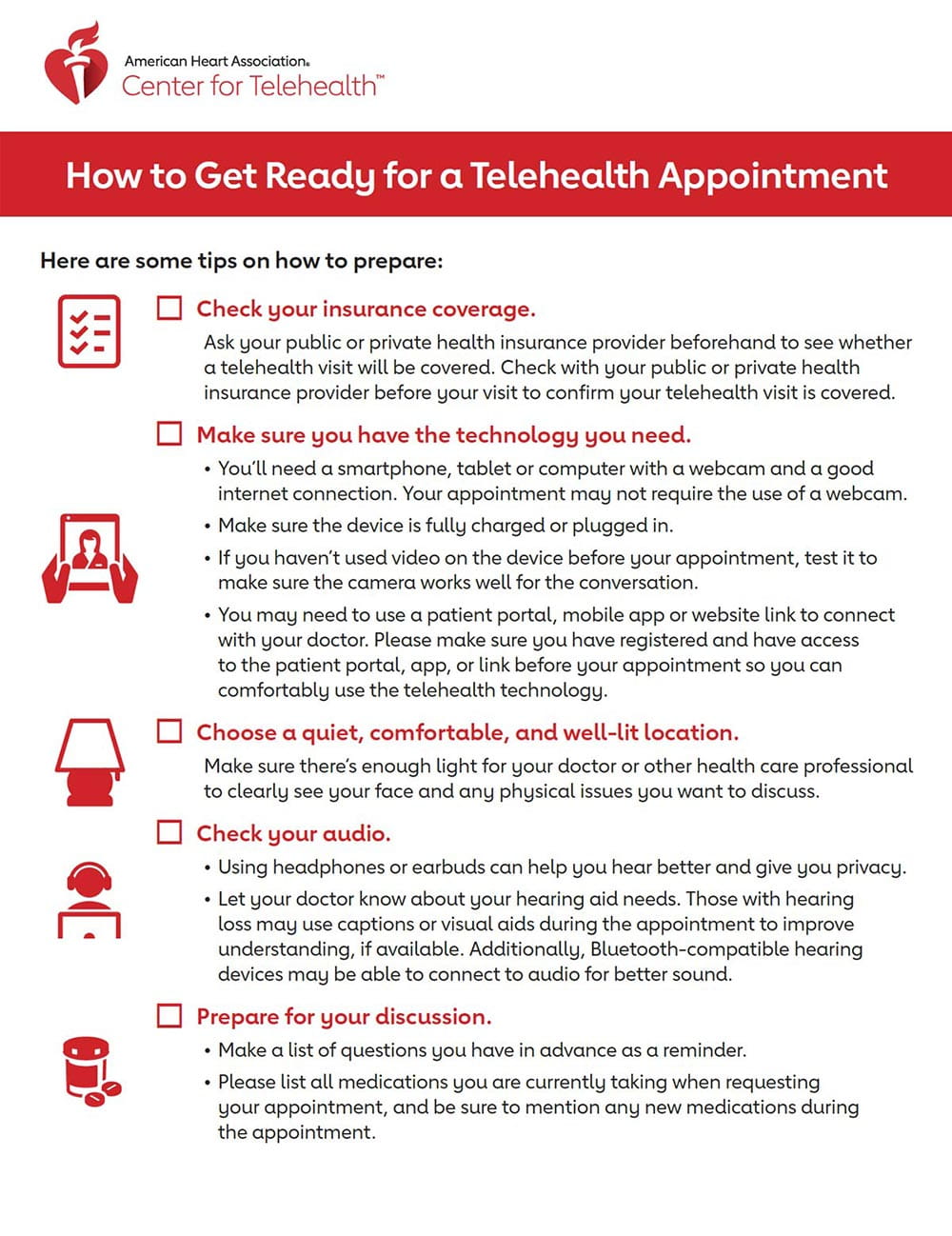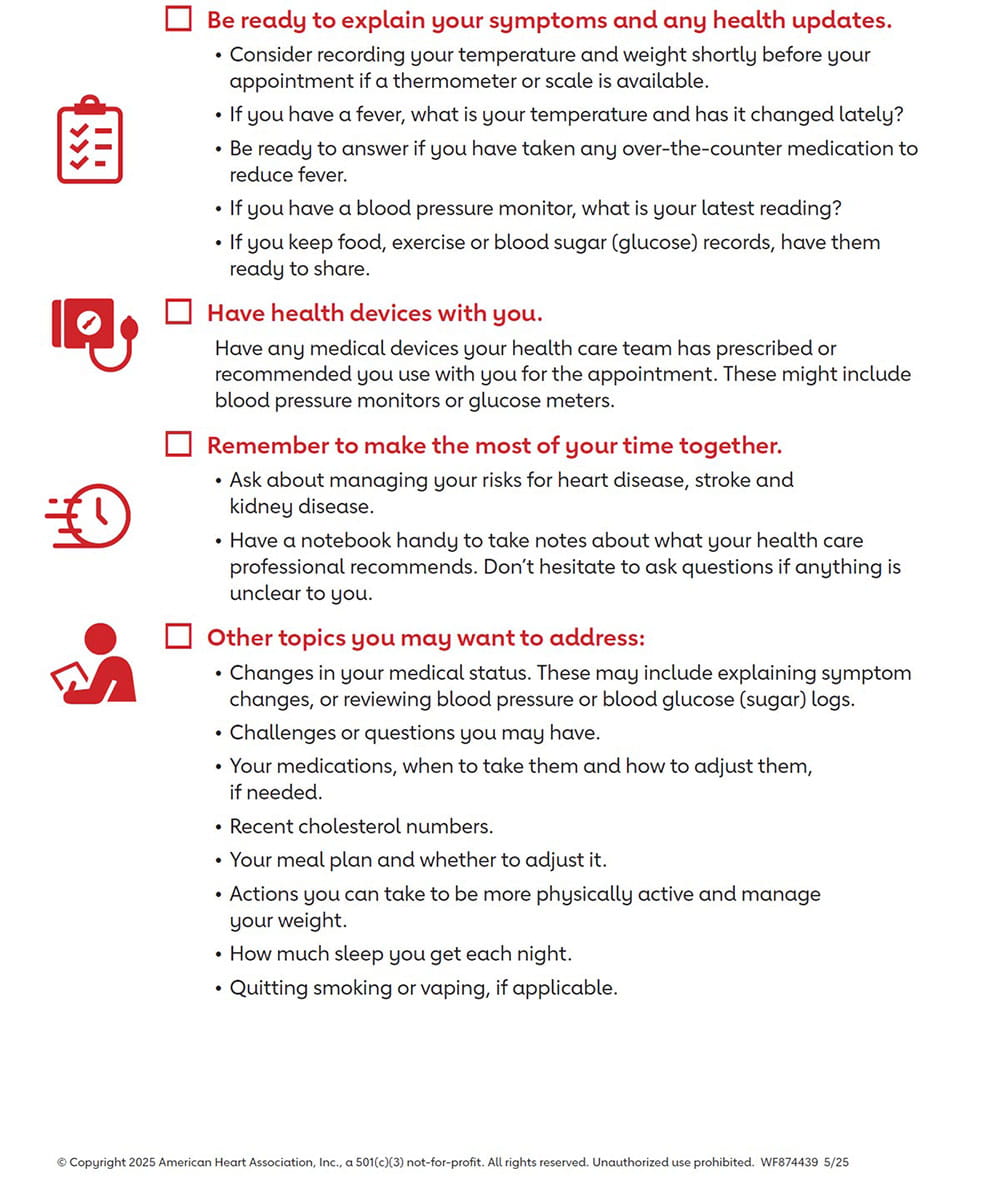How to Get Ready for a Telehealth Appointment
Download a PDF of this infographic.


Here are some tips on how to prepare:
Check your insurance coverage.
- Ask your public or private health insurance provider beforehand to see whether a telehealth visit will be covered.
Make sure you have the technology you will need.
- You’ll need a smartphone, tablet or computer with a webcam and a good internet connection.
- Make sure the device is fully charged or plugged in.
- If you haven’t used video on the device before your appointment, test it to make sure the camera works well for the face-to-face conversation.
- For your telehealth appointment, you may need to use a patient portal, mobile app or website link to connect with your doctor. Please make sure you have access to the patient portal, app or link before your appointment and can comfortably use the telehealth technology.
Choose a quiet, comfortable, well-lit location.
- Make sure there’s enough light for your health care provider to clearly see you face and any physical issues you want to discuss.
Check your audio.
- Using headphones or earbuds can help you hear and give you privacy.
Prepare for your discussion.
- Make notes ahead of time about any questions and/or issues you want to discuss.
- Be ready to say why you want to be seen and what your biggest priority for the appointment is.
- Make a list of the medications and supplements you take (prescription as well as over-the-counter).
Be ready to explain your symptoms and any updates on your health.
- Consider recording your temperature and weight shortly before your appointment if a thermometer or scale is available.
- If you have a fever, what is your temperature and has it changed lately?
- If you have a blood pressure monitor, what is your latest reading?
- If you keep food, exercise or blood sugar (glucose) records, have them ready to share.
Have health devices with you.
- Have any medical devices your health care team has prescribed or recommended you use with you for the appointment. These might include blood pressure monitors or glucose meters.
Remember to make the most of your time together.
- Ask about managing your risks for heart disease, stroke and kidney disease.
- Be ready to make notes about what your health care professional recommends and ask questions if anything is unclear to you.
Other topics you may want to address.
- Changes in your medical status. These may include explaining symptom changes, or reviewing blood pressure or blood glucose logs.
- Challenges or questions you may have.
- Your medications, when to take them and how to adjust them, if needed.
- Recent cholesterol numbers.
- Your meal plan and whether to adjust it.
- Actions you can take to be more physically active and manage your weight.
- How much sleep you get each night.
- Quitting smoking or vaping, if applicable.